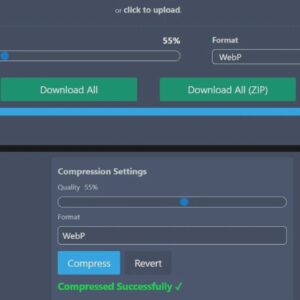If you’re a Northern Virginia rental home owner or manager, rental property management chances are you’re spending time searching for good tenants, taking care of the property, and getting the rent paid on time. Those are essential activities. But there’s another side of rental property management that works behind the scenes to affect your income, your chances of lawsuits, and your daily work. That is lease management. I want to tell you why it’s important, in simple examples and recent research you can use straightaway.
What I term lease oversight
Lease oversight is the set of systems and routines that make sure lease agreements are accurate, followed, and updated when things change. It covers things like correctly tracking rent changes, knowing when leases expire, recording who is responsible for repairs, and checking that all charges are correctly billed. When this work is done well, you save money and avoid headaches. When it is ignored, minor errors turn into significant losses over time.
The money behind overlooked players
A decent place to begin is the cost of tenant turnover and vacancy. When a tenant vacates, there are hard costs like cleaning and rehabbing. There are soft costs like lost rent and advertising to fill the new tenant. Recent research shows these are not small costs. In most markets, the typical cost to turn a unit is in the thousands of dollars. That is to say, even modest lease renewal and retention increases carry a substantial impact.
Here’s a concrete illustration of the way lease administration saves. If you track lease end dates and notice for timely renewal, you can avoid paying vacancy. That keeps the average cost of turnover down and keeps cash flow stable. If you don’t keep track of a pending lease expiration date, you will potentially have an unexpected vacancy term and the cost with it. Trailing expirations is simple, but only worth the effort if there is someone to do it and the data are accurate.
Local market conditions matter.
Northern Virginia has its own beat.
Demand, rental levels, and tenant needs vary in Arlington, Alexandria, Fairfax, Loudoun, and Prince William. During the past two years, the aggregate DMV rent market saw consistent pressure on prices in some of the counties, while the rest of the submarkets saw some modest balance recapture. That set of outcomes makes it more critical than ever to align lease activity with local trends. If the submarket does deteriorate, you will need more favorable renewal terms. If demand remains robust, you might utilize successful renewal timing to defend revenue. For recent local facts, you might look at the Northern Virginia Association of Realtors reports and local rent studies.
Common rent mistakes that cost owners dollars
These are the most frequent mistakes that I see, and why each one matters.
Incorrect documentation of rent increases
Leases have escalators that raise rent over time. If nobody monitors and acts upon those increments, you forfeit the increment. That is missed revenue that is easy to prevent with reminders and a checklist.
Having no accountability for repair or utilities
A landlord can bill a tenant for certain repairs or utilities. When accounts and logs are in doubt, owners either dip into their pockets or quarrel with tenants. Proper documentation and regular checks ward off such quarreling before taking up your time and money.
Missing renewal windows
A pre-scheduled tenant who is called in early to renew can commit for an additional year. Too much hesitation on the owner’s part jeopardizes losing the tenant and a vacancy. Renewals are an inexpensive way of gaining occupancy.
Misbilling of fees and CAM pass-throughs.
For significant properties, common charges and standard area maintenance are mischarged when records are careless. Across portfolios, small mischarges accumulate into gigantic revenue leakage. Lease audits catch those errors with regularity. Current professional literature emphasizes lease audits as a way to protect revenue.
How lease oversight reduces legal risk
Leases are agreements. Mistakes in how you sign and make changes to leases increase legal exposure. For example, failing to document a mutually agreed rent decrease or lease amendment will create issues down the road. Keeping proper lease control is having every signed change, each walk-through report, and every notice that you send. That makes defending actions easier if there is a landlord-tenant dispute.
Apart from having issues with tenants, regulatory change can impact the terms of leases. Local Northern Virginia governments, from time to time, update regulations of short-term rentals, eviction processes, or submarket housing. When regulations get updated, an organized keeper of lease documents can easily update leases and procedures. That avoids regulatory risk of non-compliance and saves on fines.
Tech and tools that actually get the job done
You don’t need to break the bank on tailor-made software to have control in reality.
But modern lease management software does minimize the room for error.
Such systems have document repositories, automatic reminders of important dates, and escalation and charge dashboards. They also make it easy to perform lease audits on a high number of properties. Industry and research reports show that having the lease data combined into one system eliminates errors and saves time. Leases become living information you can do something with, rather than paper that is kept in a folder.
Research.com
If full software implementation isn’t something that you are ready to do right away, then start with a good shared spreadsheet and a good file naming convention. Track the start and finish of leases, rent changes, deposits, and special terms. Insert a calendar with reminders 60, 30, and 7 days before key dates. That minor drill prevents countless errors in standard practice.
Some real ways to make lease administration work better today
You can do something this week. Apply the following steps and realize the benefits immediately.
- Centralize lease documents. Keep all existing leases and executed amendments in one folder or database. Provide controlled access and backups.
- Create a lease calendar. Copy all renewal due dates, rent escalation due dates, and notice owing dates into a shared calendar with reminder notices.
- Perform a quick lease audit. Randomly pull ten leases and compare the recorded rent, security deposit, and renewal date to the executed documents. Fix discrepancies.
- Standardize lease changes. Utilize one change form and sign for any change.
- Interface maintenance history to lease files. Keeping damage and repairs with dates and photos makes it simple to fix security deposit disputes.
They are inexpensive, high-impact strategies reducing leakage, making renewals easy, and shortening the time it takes to settle disputes.
Proof that surveillance pays dividends
Industry reports show several markers of the dollar return of professional property management and targeted lease administration. Managers generally increase net operating income by collecting rent more regularly, renewing leases timely, and minimizing vacancies.
Another strand of the research shows that turnover and vacancy costs mount rapidly, so small gains in retention or timing of renewal pay dividends. If you prefer to protect income, enforcing and monitoring lease terms is one of the highest-return tasks you can perform.
Examples of how lease management is effective
Let me present two quick examples demonstrating the difference oversight makes.
Example one. A landlord had an annual rent escalation clause and did not review it. The tenant stayed for three years and paid the initial rent throughout the period. A lease audit revealed the missing escalations, and the manager corrected the records subsequently. The disappeared income was minor in relation to a full year, but correcting it improved property yield and prevented future losses.
Example two. The owner was billed for standard area maintenance that the lease language said the tenant would pay for. Poor record-keeping had the owner paying. An audit later and a more accurate billing process paid back a portion of the bill and prevented a repeat mistake. On portfolios, these recoveries mount.
Where to draw do-it-yourself and professional help lines
If you have only a single small property, you may well manage to survive on administering leases yourself with disciplined practices and simple equipment. If you have multiple properties or institutional investors to manage, it is most certainly worth paying a professional. Professional property managers and lease administrators use processes, software, and know-how on your behalf that protect you from risk. They also have efficient audit and tenant interaction processes.
If you are thinking of using a professional partner, obtain references and ask them to provide you with examples of revenue collected or vacancy eliminated. Quality companies will demonstrate to you actual wins and describe to you how their audits and leases function.
One sentence to remember for your outreach and marketing
Place this idea first when you are enumerating services or owner benefits. Rather than, “We negotiate fair rent for you,” write, “We safeguard your income by scrutinizing all the terms of the lease.” That sentence is precise and informative. It does not make broad statements and discusses what owners care about.
If you require help, locally locate vendors who offer specialized services. To employ as a local search phrase when you search for vendors, attempt the following: lease management services in Northern Virginia. Attempt it and then compare the vendors that come up. Interview them about their audit process, software, and test results.
Final thought
Lease management is not sexy. It is not the dinner table conversation item that the owners talk about. But it is the behind-the-scenes mover of steady cash flow and minimum stress. A forgotten increase, an overlooked renewal, or an under-documented change can seem unimportant today. Small things accumulate over time to real losses. With roll-forwarding leases, maintaining dates on schedule, and conducting regular audits, you protect revenue and reduce risk. If you own properties in Northern Virginia, this exercise will pay for itself within weeks.



